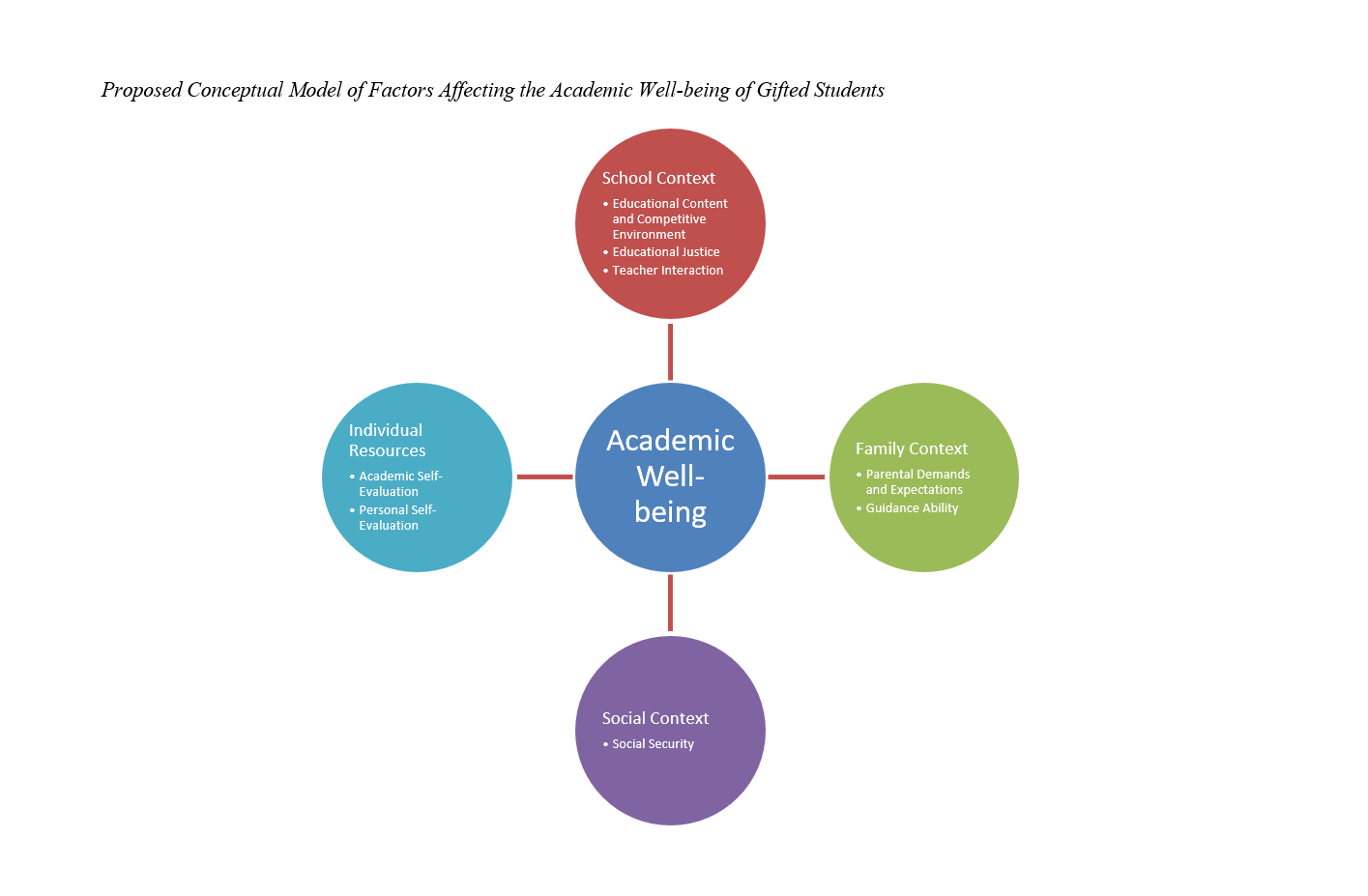Development of an Academic Well-being Model for Gifted Students: A Grounded Theory Study
Keywords:
Academic well-being, gifted student, grounded theoryAbstract
Objective: This study aimed to identify the factors influencing the academic well-being of gifted students to develop a model.
Methods and Materials: The research method used in this study was qualitative, utilizing a grounded theory approach. Data were collected through semi-structured interviews. The data were examined and analyzed based on Strauss and Corbin's (1998) grounded theory methodology. The study population consisted of all male and female gifted sixth-grade students in the city of Isfahan in 2022. The research sample was selected through purposive sampling, and after conducting interviews with 23 students, the factors influencing academic well-being were identified. It should be noted that data analysis was conducted using three stages of open, axial, and selective coding.
Findings: Based on the results of the study, open codes were organized around 57 concepts, axial codes included 8 concepts, and selective codes were identified and extracted into 4 concepts under the titles of school context, family context, social context, and individual resources.
Conclusion: The findings of the research suggest that by recognizing and understanding the factors influencing academic well-being, it is possible to create conditions that enhance the academic well-being of gifted students.
Downloads

Downloads
Additional Files
Published
Submitted
Revised
Accepted
Issue
Section
License

This work is licensed under a Creative Commons Attribution-NonCommercial 4.0 International License.








